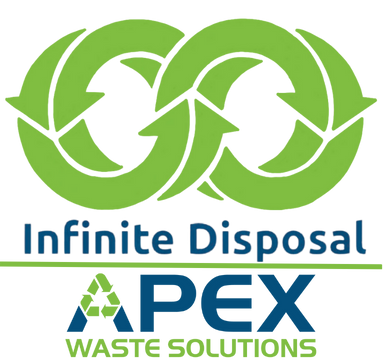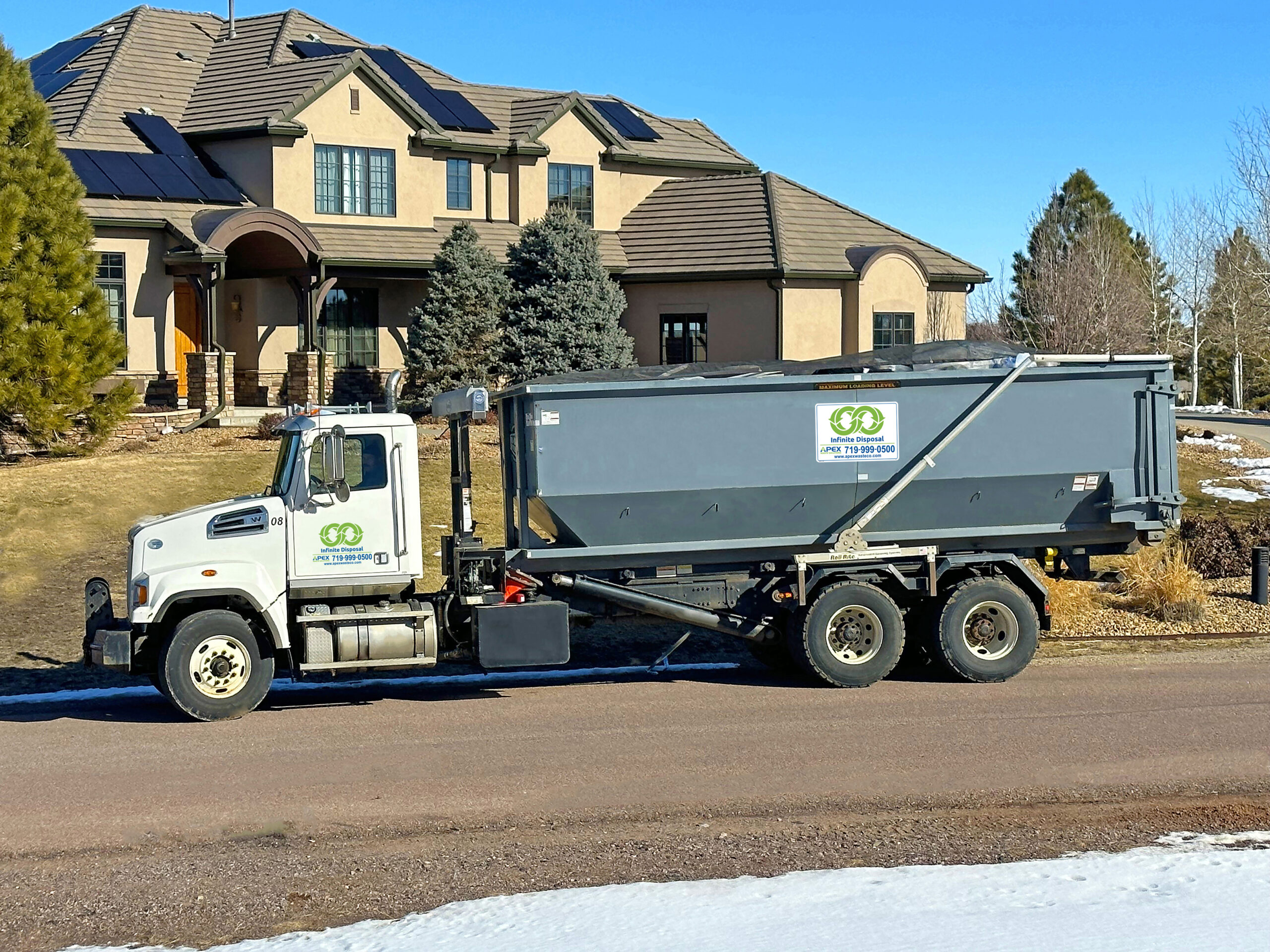Managing household waste during major projects can be overwhelming without a plan in place. Whether you’re clearing out your garage during spring cleaning or gutting a kitchen for a remodel, renting a residential dumpster can make the job significantly easier. In this guide, we’ll explore when it makes sense to rent a dumpster, how to choose the right size, and what to expect from the rental process.
Why Homeowners Rent Dumpsters
From life transitions to home upgrades, there are many reasons a homeowner might consider renting a roll off dumpster.
Spring Cleaning and Decluttering
That annual urge to deep clean your home often reveals just how much clutter has built up. Old furniture, broken appliances, and years of accumulated junk can quickly overflow regular trash bins. Renting a 10 yard or 12 yard dumpster provides a convenient solution for disposing of items all at once, without multiple trips to the dump.
Moving to a New Home
Packing up your belongings inevitably leads to a pile of things you don’t want to take with you. Instead of stuffing your donation bin and dragging dozens of bags to the curb, renting a dumpster helps streamline your move. A 15 yard dumpster is often ideal for moving-related cleanouts, especially if you’re purging furniture or downsizing your household.
Downsizing or Estate Cleanouts
Whether you’re helping a family member transition into assisted living or moving into a smaller home, downsizing generates a large volume of waste. Items like mattresses, dressers, and boxes of old keepsakes need to be removed efficiently. In these situations, a 20 yard or 30 yard dumpster can accommodate bulky loads and save you time.
Home Renovation Projects
Remodeling a kitchen, updating a bathroom, or replacing flooring all generate construction debris that can’t go in your household trash. Drywall, tile, lumber, and insulation pile up quickly. Depending on the scope of the renovation, you may need a 15 yard, 20 yard, or even a 30 yard dumpster to manage the waste safely and legally.
What Are Roll Off Dumpsters?
Roll off dumpsters are large, open-top waste containers designed to be delivered and picked up by a truck. They’re called “roll off” dumpsters because they are rolled off the back of a truck and placed on your driveway or a designated spot on your property. These containers are rented for a set period and come in various sizes to handle everything from light junk removal to heavy demolition debris.
Choosing the Right Dumpster Size for Your Project
Selecting the correct size is key to maximizing convenience and minimizing cost. Here’s a breakdown of common sizes and their ideal use cases:
10 Yard Dumpster
Best for: Small home cleanouts, yard debris, or minor decluttering projects
Capacity: Roughly 3 pickup truck loads
Fits in: Most residential driveways
Ideal for: Spring cleaning, garage cleanouts, or single-room decluttering
12 Yard Dumpster
Best for: Slightly larger cleanouts, minor remodeling jobs, or disposing of bulky items
Capacity: 3.5 pickup truck loads
Ideal for: Removing small furniture, flooring, or roofing shingles (under 25 squares)
15 Yard Dumpster
Best for: Mid-size projects with moderate debris
Capacity: About 4.5 pickup truck loads
Ideal for: Moving-related cleanouts, single-room remodels, or small deck removals
20 Yard Dumpster
Best for: Large household cleanouts or multi-room renovation projects
Capacity: About 6 pickup truck loads
Ideal for: Downsizing, estate cleanouts, or flooring/carpet removal across multiple rooms
30 Yard Dumpster
Best for: Large-scale remodels, major downsizing, or whole-home renovations
Capacity: About 9 pickup truck loads
Ideal for: Roofing jobs, extensive demolition debris, or moving from a large house
What Can You Put in a Residential Dumpster?
Most general household and renovation debris is allowed, but certain restrictions apply.
Acceptable Materials
Furniture and mattresses
Clothing, toys, and general junk
Remodeling debris (drywall, lumber, tile, etc.)
Yard waste (leaves, branches, grass)
Non-refrigerated appliances
Prohibited Items
Tires and car batteries
Paint, chemicals, and hazardous waste
Refrigerators and air conditioners
Electronics (TVs, computers, etc. in some municipalities)
Propane tanks or flammable items
Always confirm local disposal rules and ask your rental provider for a list of prohibited items before loading your dumpster.
Benefits of Residential Dumpster Rentals
Renting a dumpster isn’t just about convenience—it can also improve safety, efficiency, and project outcomes.
Declutter in One Go
Instead of dragging items out week by week for regular trash pickup, a roll off dumpster lets you remove everything at once. This is especially helpful for estate cleanouts and moving deadlines.
Prevent Injury
Construction debris, broken furniture, or rusty metal items pose injury risks. A central dumpster keeps dangerous materials contained and out of the way.
Save Time and Money
Frequent trips to the landfill cost gas, time, and often tipping fees. A one-time dumpster rental can be more cost-effective and less physically demanding.
How the Dumpster Rental Process Works
If you’ve never rented a dumpster before, the process is easier than you might think.
Step 1: Choose a Size
Estimate your debris volume and choose a dumpster size that fits the scope of your project. If in doubt, go one size up—you’ll avoid overage fees or needing a second dumpster.
Step 2: Schedule Delivery
Most companies can deliver within 24–48 hours. You’ll need a clear, level spot like a driveway or designated curb space.
Step 3: Load Your Dumpster
You can usually keep the dumpster for 7–10 days, depending on your provider. Load items evenly to avoid overfilling, and don’t exceed the weight limit.
Step 4: Pickup and Disposal
Once your dumpster is full, schedule pickup. The rental company will haul away your waste and handle disposal according to local regulations.
Do You Need a Permit for a Dumpster?
Whether or not you need a permit depends on where you plan to place the dumpster.
On private property (driveway, yard): Usually no permit required
On a public street or sidewalk: A temporary permit from the city may be necessary
Check with your local municipality or ask your dumpster provider—they often help coordinate permitting.
Tips for a Successful Dumpster Rental Experience
To get the most out of your rental, keep these best practices in mind:
Protect Your Driveway
Place plywood or boards beneath the dumpster to prevent scratches or damage, especially with heavier bins like 20 or 30 yard sizes.
Break Down Items
Disassemble large furniture and break boxes down to maximize space.
Load Evenly
Distribute weight throughout the container and avoid stacking high on one side. This ensures safe transport and avoids overage penalties.
Stay Within Limits
Don’t overfill the dumpster or exceed the weight limit. Overloaded containers may not be picked up until excess debris is removed.
When NOT to Rent a Dumpster
Dumpster rentals are great for most cleanup projects, but there are times when they may not be the best fit:
Short-term jobs with minimal waste: If your debris fits in a few trash bags, skip the dumpster
Hazardous material disposal: Paint, asbestos, and chemicals require specialized disposal services
No available space: If your home lacks a driveway or street access, placement may be an issue
In those cases, consider junk removal services or a local transfer station drop-off instead.
Dumpster Rental FAQs for Homeowners
How far in advance should I book?
Booking 2–3 days in advance is typically sufficient, though same-day service may be available.
Can I move the dumpster after delivery?
No. Once placed, the dumpster should remain where it is for safety and legal reasons.
What if it rains or snows during my rental?
Cover the dumpster with a tarp to prevent water weight and frozen waste. This helps avoid overage fees and makes loading easier.
What happens if I need more time?
Most companies offer flexible extensions for a daily fee. Plan ahead if your project may run long.
Final Thoughts: Is a Dumpster Right for Your Next Home Project?
If you’re feeling overwhelmed by clutter, prepping for a move, or knee-deep in a home renovation, a residential dumpster rental can help simplify your cleanup process. With options ranging from 10 to 30 yards, there’s a container for every scale of project.
Ready to get started? Contact us today to schedule your residential dumpster rental. Our team will help you select the right size and make the rental process quick and hassle-free—so you can focus on what matters most: getting the job done.


0 Comments